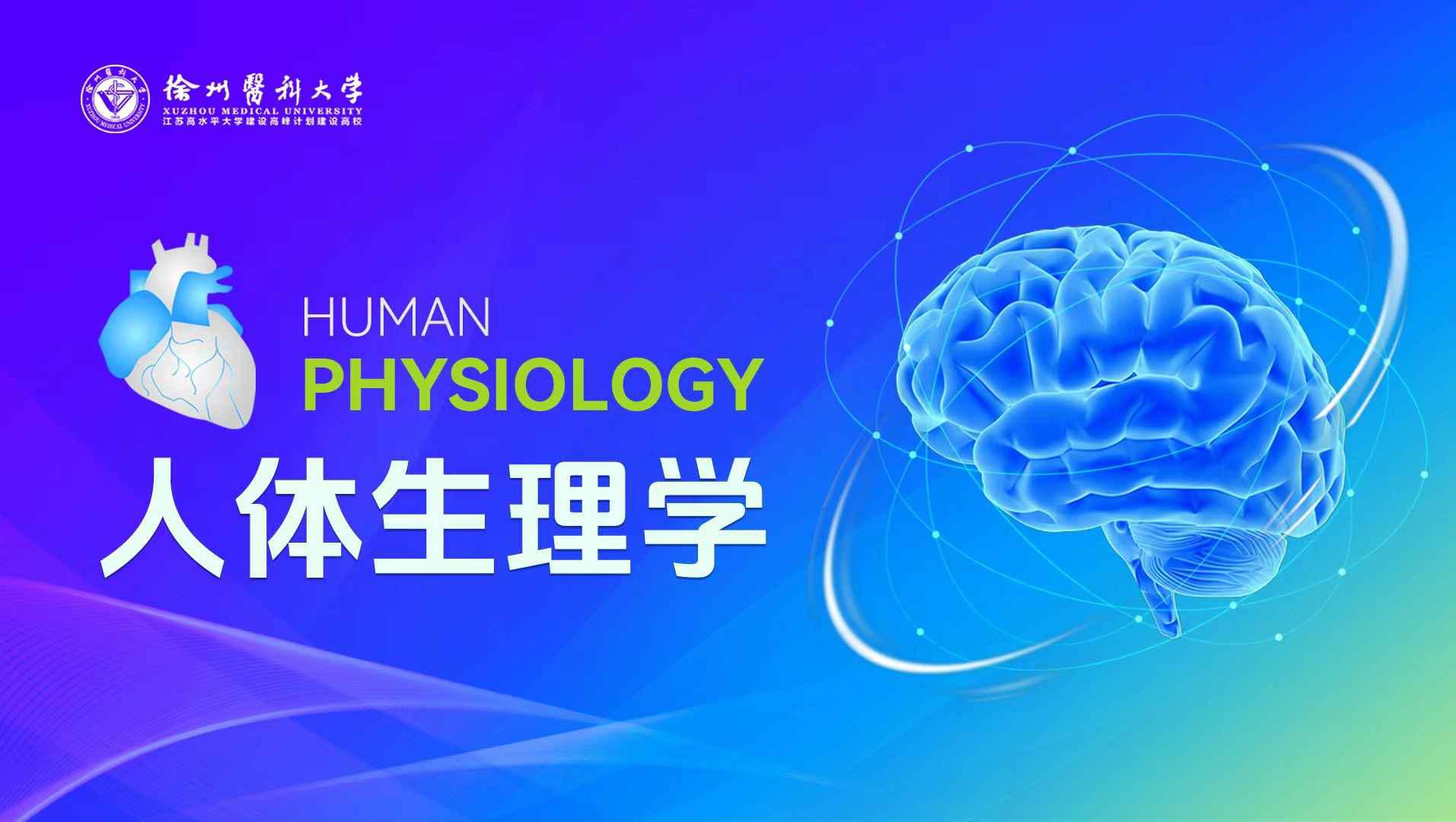| 开课平台: | 中国大学MOOC |
|---|---|
| 开课高校: | 徐州医科大学 |
| 开课教师: | 乔伟丽 |
| 学科专业: | 医学 医学技术类 |
| 开课时间: | 2026/01/15 - 2026/07/10 |
| 课程周期: | 26 周 |
| 开课状态: | 开课中 |
| 每周学时: | - |
人体生理学作为医学教育的主干课程,是一门重要的医学必修基础课程。人体生理学属于生物科学的一个分支,是研究正常情况下人体功能活动规律和机制的科学。
著名生理学家Claude Bernard指出:“医学是关于疾病的科学,而生理学则是关于生命的科学。所以后者比前者更具有普遍性。”人体生理学的知识可用于解决人体各个组成部分及系统具有哪些功能,这些功能又是如何实现的,以及这些功能受哪些因素和条件的调节和控制等问题。只有充分了解正常条件下机体各项功能活动的规律,才能了解在非正常调剂及疾病状态下功能的改变原因以及如何通过药物和医疗手段进行预防和治疗。因此,学习人体生理学既可很好的指导日常生活,同时也是医学生学习后续专业课程及临床实践的理论基础。
Human physiology, as the backbone course of medical education, is an important compulsory basic course in medicine. Human physiology is a branch of biological science that studies the laws and mechanisms of human functional activities under normal circumstances.
Famous physiologist Claude Bernard pointed out that " Medicine is a science about diseases, while physiology is a science about life. Therefore, the latter is more universal than the former." The knowledge of human physiology can be used to solve problems such as what functions each component and system of the human body has, how these functions are achieved, and what factors and conditions regulate and control these functions. Only by fully understanding the patterns of various functional activities in the body under normal conditions can we understand the reasons for functional changes in abnormal regulation and disease states, as well as how to prevent and treat them through medication and medical means. Therefore, studying human physiology can not only guide daily life well, but also serve as the theoretical foundation for medical students to learn subsequent professional courses and clinical practice.
第一章 绪论 (Introduction)
本章学习要点
第一节 人体生理学概论 Introduction to human physiology
第二节 内环境与稳态 Internal environment and homeostasis
第三节 人体生理功能的调节 Regulation of human physiological functions
第四节 人体生理功能的自动调控 Control system in human physiology
生理与临床
绪论 单元测验
绪论 单元作业
第二章 细胞的基本功能 (Basic functions of cell)
本章学习要点
第一节 细胞膜的基本结构及其跨膜转运功能 Cell membrane and membrane transportation
第二节 细胞的生物电活动 Bioelectricity of cell
第三节 骨骼肌的兴奋和收缩 Exitation and contraction of skeletal muscle
生理与临床
细胞的基本功能 单元测验
细胞的基本功能 单元作业
第三章 血液 (Blood)
本章学习要点
第一节 血液和血细胞 Blood and blood cells
第二节 生理性止血 Physiological hemostasis
第三节 血型与输血 Blood group and transfusion
生理与临床
血液 单元测验
第四章 血液循环 (Blood circulation)
本章学习要点
第一节 心脏的泵血功能 Pump function of heart
第二节 心肌的电活动 Bioelectricity of myocardial cells
第三节 心肌的生理特性 Physiological characteristics of myocardial cells
第四节 血压 Blood pressure
第五节 组织液的生成与回流 Interstitial fluid generation and reflux
第六节 心血管活动的调节 Regulaiton of cardiovascular activities
生理与临床
血液循环单元作业
血液循环单元测验
第五章 呼吸 (Respiration)
本章学习要点
第一节 肺通气和肺换气 Pulmonary ventilation and gas exchange
第二节 呼吸气体在血液中的运输 transportation of oxygen and carbon dioxide in blood
第三节 呼吸运动的调节 Regulation of respiration
生理与临床
呼吸 单元测验
呼吸 单元作业
第六章 消化和吸收 (Digestion and absorption)
本章学习要点
第一节 消化液的分泌 The secretion of digestive juices
第二节 消化道的运动 Motility of alimentary tract
第三节 营养物质的消化和吸收 Digestion and absorption
生理与临床
消化和吸收 单元测试
消化和吸收 单元作业
第七章 能量代谢与体温 (Energy metabolism and body temperature)
本章学习要点
第一节 能量代谢 Energy metablism
第二节 体温及其调节 Body temperature and regulation
生理与临床
能量代谢与体温 单元测试
第八章 肾脏生理 (Renal physiology)
本章学习要点
第一节 肾脏的解剖结构及血液循环特点 Structure of kindneys
第二节 尿的生成过程 Formation of urine
第三节 肾脏泌尿功能的调节 Regulation of urinary function
案例
肾脏生理单元测验
肾脏生理作业
第九章 感觉器官 (Sensory organ)
本章学习要点
第一节 眼的调节 Accommodation of eyes
第二节 眼的感光 Visual sense of eyes
第三节 耳的功能 Auditory sense of ears
生理与临床
感觉器官单元测试
第十章 神经系统 (Nervous system)
本章学习要点
第一节 神经元与神经胶质细胞的功能 Neurons and glial cells
第二节 神经元之间的信息传递 Information transmission between neurons
第三节 反射活动的一般规律 Reflex
第四节 神经系统对感觉、运动及内脏功能的调节 Regulation of nervous system
第五节 脑的高级功能 Higher brain function
生理与临床
神经系统单元测验
神经系统单元作业
第十一章 内分泌系统 (Endocrine system)
本章学习要点
第一节 激素与腺体 Hormone and glands
第二节 甲状腺 Thyroid gland
第三节 肾上腺 Adrenal gland
第四节 胰岛 Pancreatic islet
案例
内分泌系统单元测验
中国生理学知识竞赛专区 (Physiology quiz in China)
竞赛视频专辑
2022 竞赛真题
2023 竞赛真题
